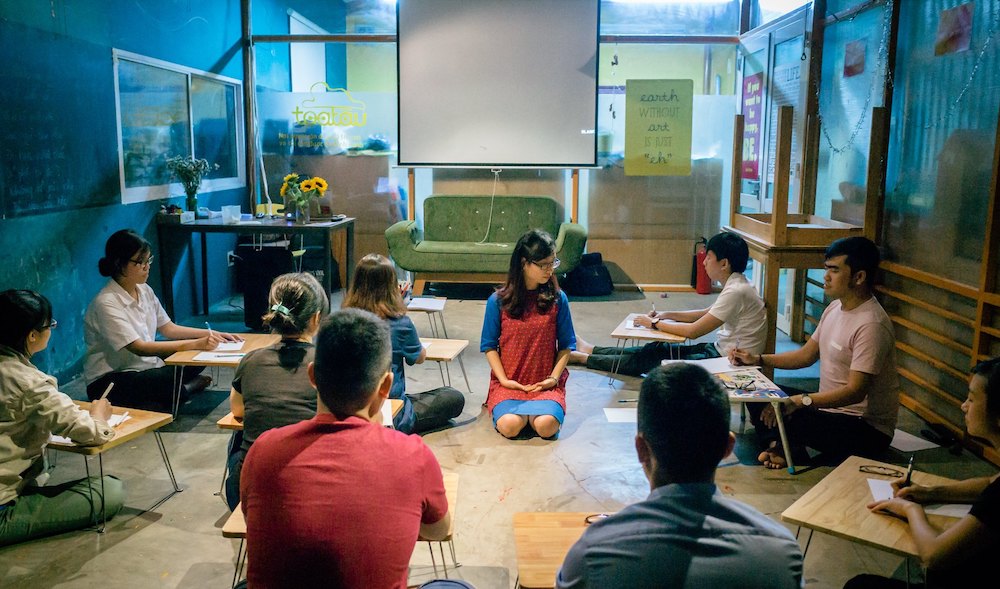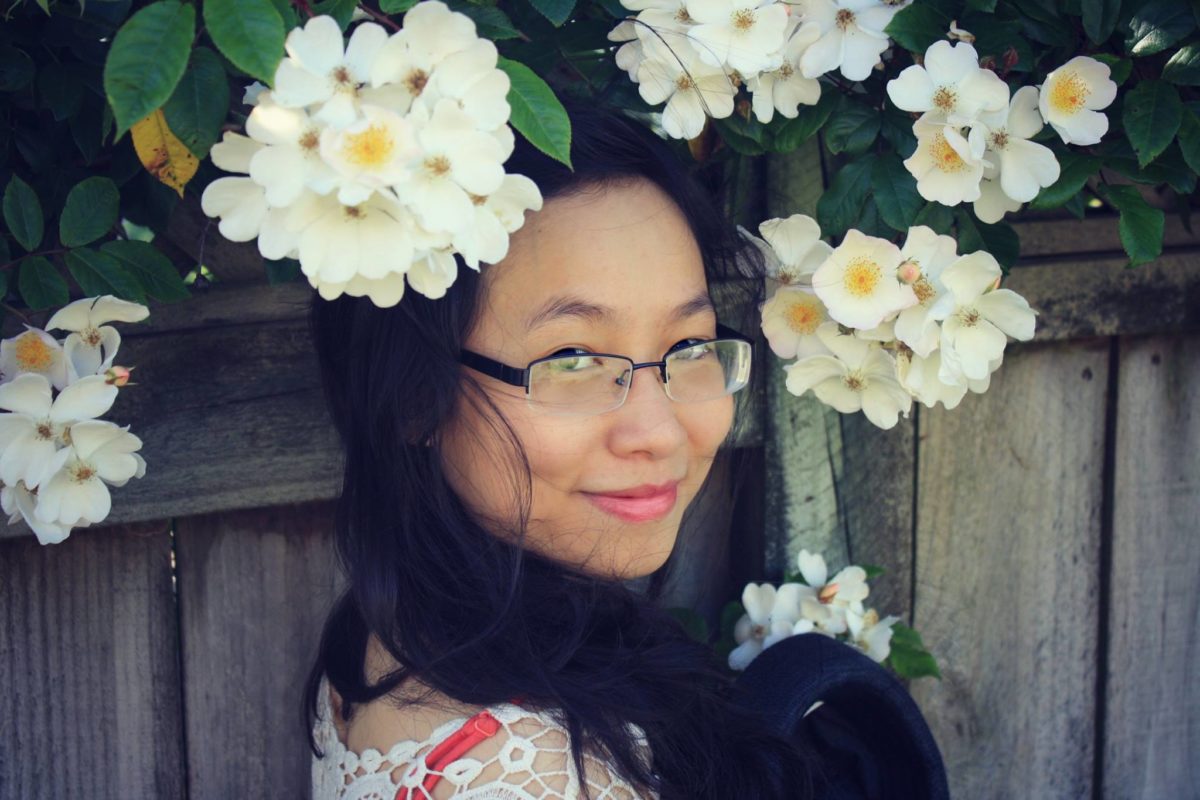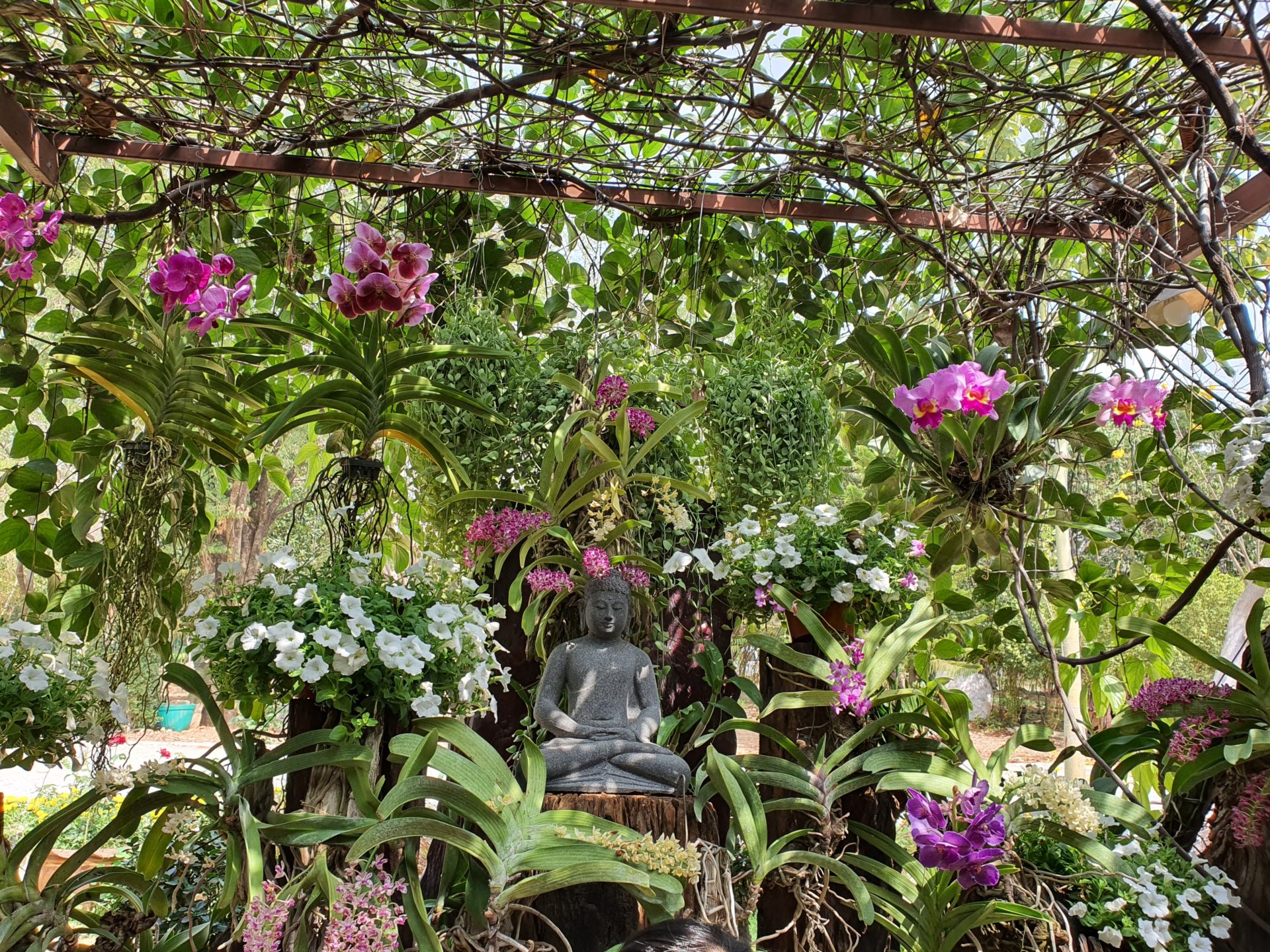By Phien Nghien

In mid-March, the city of Los Angeles began closing for the pandemic. At the time, I signed up for a five-day online course, “In the Footsteps of Thich Nhat Hanh,” offered by Lion’s Roar and the Thich Nhat Hanh Foundation. I posted several online recommendations. I thought the trouble of posting was worth it if,
By Phien Nghien

In mid-March, the city of Los Angeles began closing for the pandemic. At the time, I signed up for a five-day online course, “In the Footsteps of Thich Nhat Hanh,” offered by Lion’s Roar and the Thich Nhat Hanh Foundation. I posted several online recommendations. I thought the trouble of posting was worth it if, out of hundreds of Facebook “likes,” even only one person registered for the course. Thay said, “The next Buddha is a Sangha,” and I believe this. During years of community work, I observed how practitioners can inspire others to practice. I believe that when a person is happy, the people around them enjoy that peaceful energy and want to better themselves.
When I lived in Vietnam, I facilitated a workshop, “Writing to Be Free,” at an organization called Toa Tau, which had the motto “Creation. Connection. Healing.” The classes were small; we usually sat in a circle on a cement floor, bathing in the warmth of the golden light. Occasionally, a dog barked outside; other times, rain fell on the roof. A lot of people cried after writing about and sharing their emotional personal stories. Everyone practiced deep listening without judgment, in mindfulness. We did not have scores, tests, or guidelines. Writing was not a fancy technique but a tool to understand ourselves. In an encouraging and supportive environment, we felt comfortable to go with the flow courageously and honestly, and write words containing love, joy, or wounds.
When my own life was full of suffering, I found that writing and practicing the simple lessons from Thay’s books and videos guided me on the quest for healing. Following Thay’s suggestion to write a compassionate letter to our beloved one, I encouraged the students in this workshop to write a letter to themselves for self-reflection, to help them learn to love themselves. A lot of suffering was embraced, and every inner child was hugged.
The “In the Footsteps” course was the first time I have been touched deeply by an online course. I saw the strong continuation of Thay in the instructors. I am truly grateful to those who organized this project and who were patient, faithful, and understanding. The course reminded me of the time I visited Tu Hieu temple and found a place of quiet and mystique. I sat in the shade of the ancient catappa tree by the Tam Quan gate, and I could feel Thay’s footsteps as a novice monk. Thay is here, there, and everywhere.
I suddenly wondered how I might spread that peacefulness in the United States during pandemic quarantine. I remembered that in my first year in the United States, I had spent quite a lot of time on self-care to help me on my journey in a new, strange place. After attending the “In the Footsteps” course, I remembered Thay’s teaching that we should go as a river, and I wanted to pay forward what I had received from the course.
So I developed a free eight-week online writing project like the one I had attended in Vietnam. The writing course featured prompts and topics covering family, childhood, career, and dreams. It encouraged people to spend their quarantine time writing, discovering, loving, understanding, and embracing themselves.
The participants received specific and detailed instructions on the method of mentalization and were given additional resources such as articles and videos. They were also encouraged to take photos of their writing and send them to me. Every day, I spent time reading their texts and answered them with compassionate energy and a blessing. I read every word in the spirit of understanding and deep listening, then provided them with feedback so they could take a deeper dive into their own spiritual world. Over the course of eight weeks, the sixty participants wrote every day for a total of fifty-six consecutive days.
The seeds of peace slowly flourished with every page. One participant was able to dismantle long-standing internal knots concerning their father, who abandoned them years ago. Another healed their resentment towards their mother, who scolded them terribly when they were young. A third participant forgave themself and their abuser, who had caused a traumatic experience that had wounded them for many years. Many stories appeased the writers’ suffering and helped them move forward in their personal journeys. Discovering themselves through writing, and knowing and sharing the stories of others, allowed people to cherish and celebrate their meaningful lives. I appreciate all the brave participants who made it happen.
As I write, it is the last week of our writing group’s journey. I am grateful to the teachers of the “In the Footsteps” course. They inspired me to create this online writing class and helped me to share peace with others. I am also grateful for all of the other activities Plum Village has been working on diligently.
Thank you, Brother Phap Hai, for your humble storytelling that reminds me of the question “What is your situation?”
Thank you, Brother Phap Luu, for your sunny smile that reminds me “The way out is in.”
Thank you, Shantum Seth, for the reminder to wake up every morning with gratitude because I am alive.
Thank you, Brother Phap Dung, for helping me to remember that the best inspiration comes from seeing the practice of others.
Thank you, Sister Chan Duc, for showing me the connection to Mother Earth during the pandemic.
Thank you, Peggy, for reading poetry and reminding me of the healing power of language.
Thank you, Anh-Huong, for asking me to embrace my inner child.
Thank you, Larry Ward, for revealing the ability to recover deeply through art.
Thank you, Sister Dang Nghiem, for reminding me to return to myself and enjoy peace and comfort.
Thank you, Denise Nguyen, for being a lovely host of the amazing in-depth question-and-answer sessions.
And a huge appreciation to the organizational unit and individuals who helped launch the course to spread the seeds of mindfulness and tranquility.
Above all, I am grateful that Thay has lived a beautiful life that reminds me of the meaning of offering each other our spiritual presence.
I would like to share a piece of poetry I wrote and translated from Vietnamese. I encourage others to join the writing journey and be inspired by Thay’s words: “Our practice is to light the lamp of the mind and keep it lit all day and night.”
Light up a lamp for every step Lotus and mud clear sky peacefulness and dawn still being with you.

Phien Nghien, a Vietnamese author and writing facilitator, believes in bringing joy, connection, and mindfulness through practicing art and especially writing. She has offered writing as a healing practice for various groups, including students, officers, workers, moms-to-be, and people with disabilities for the past four years in Vietnam.

